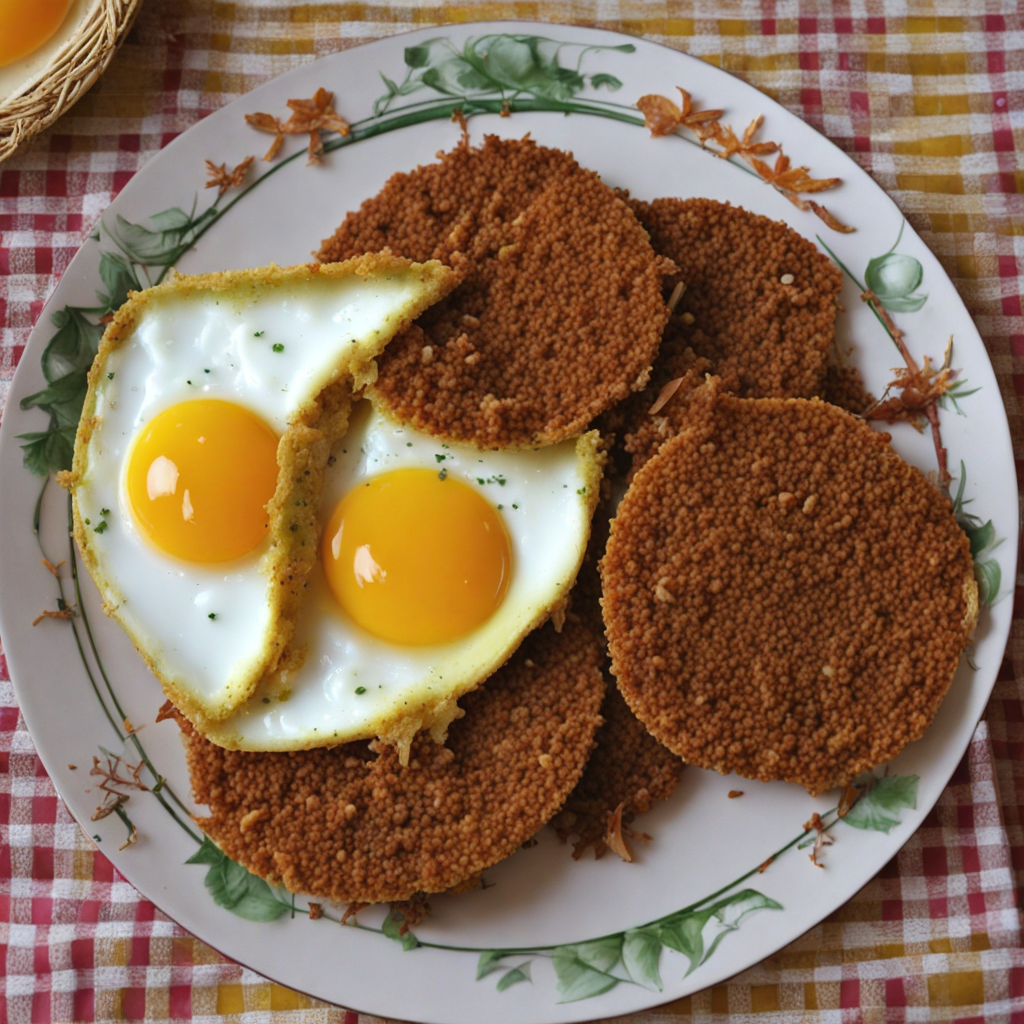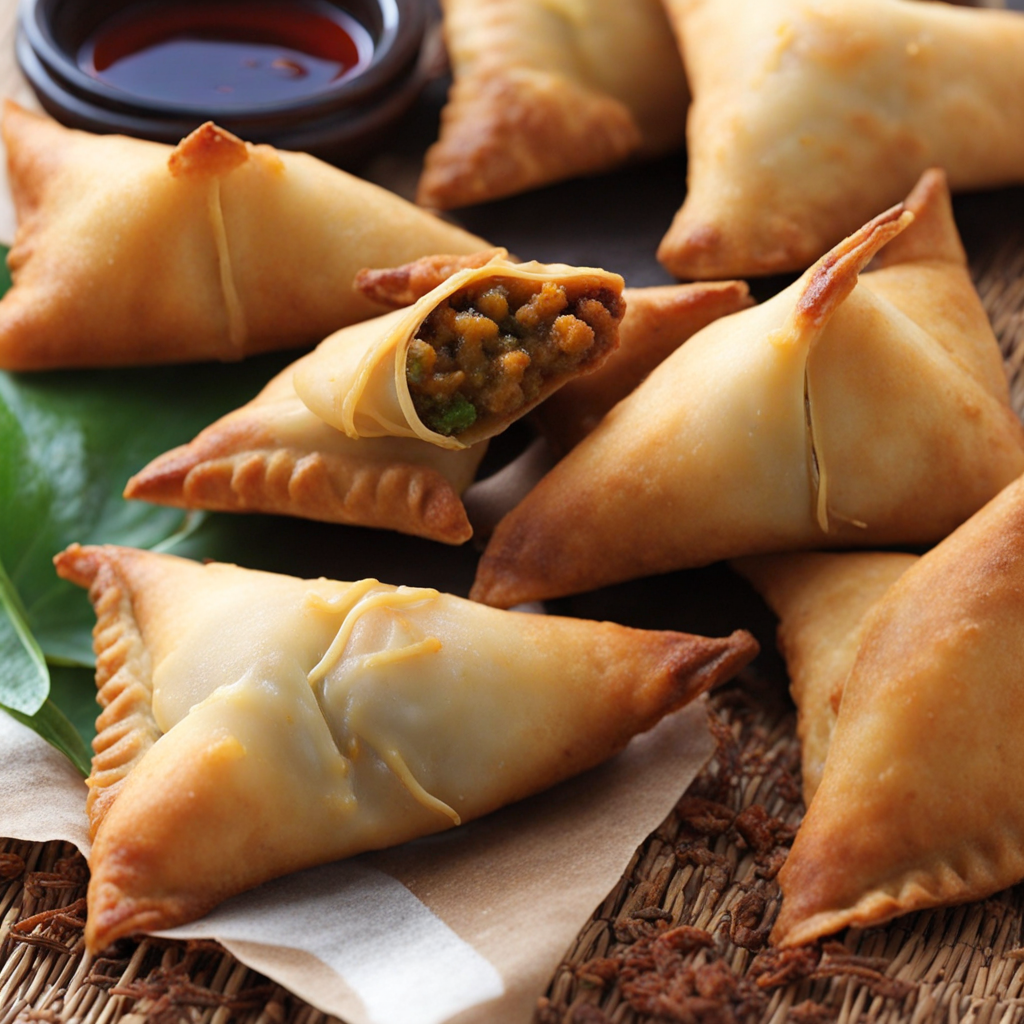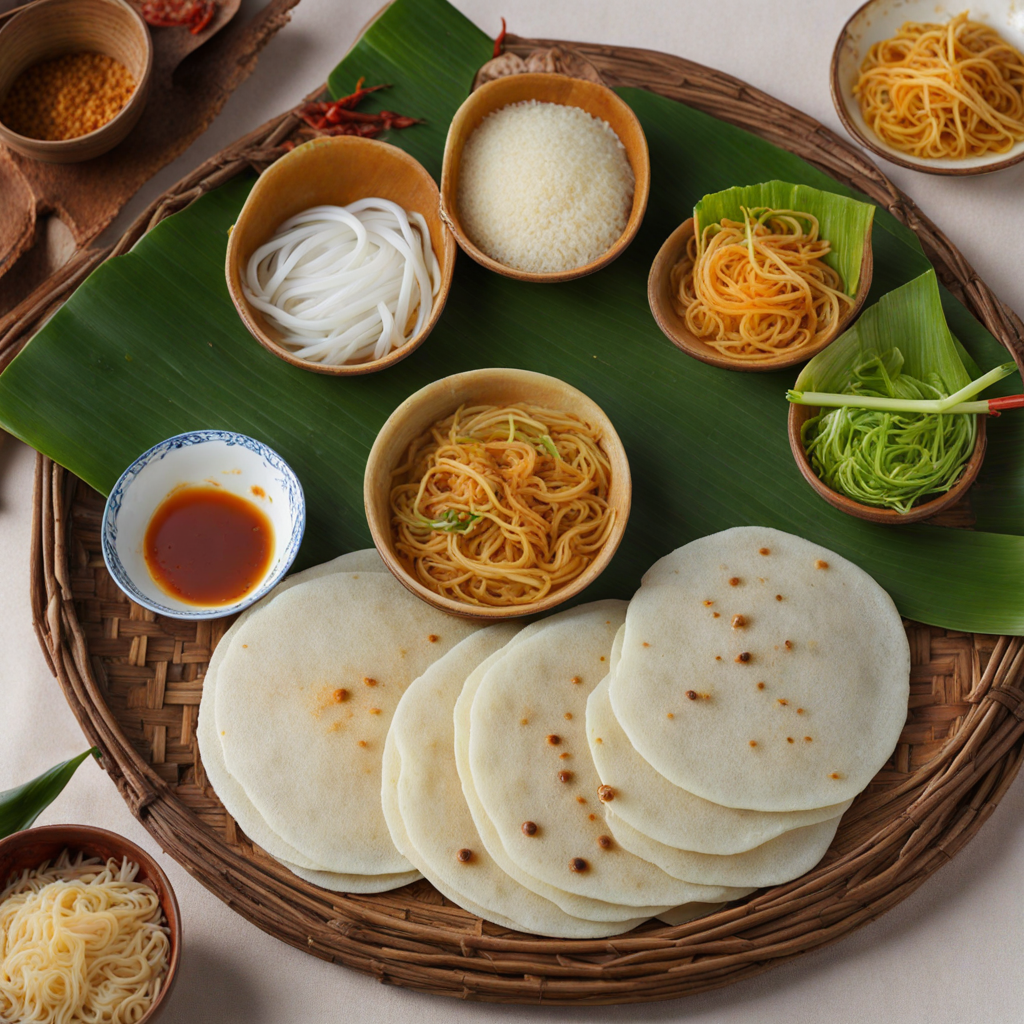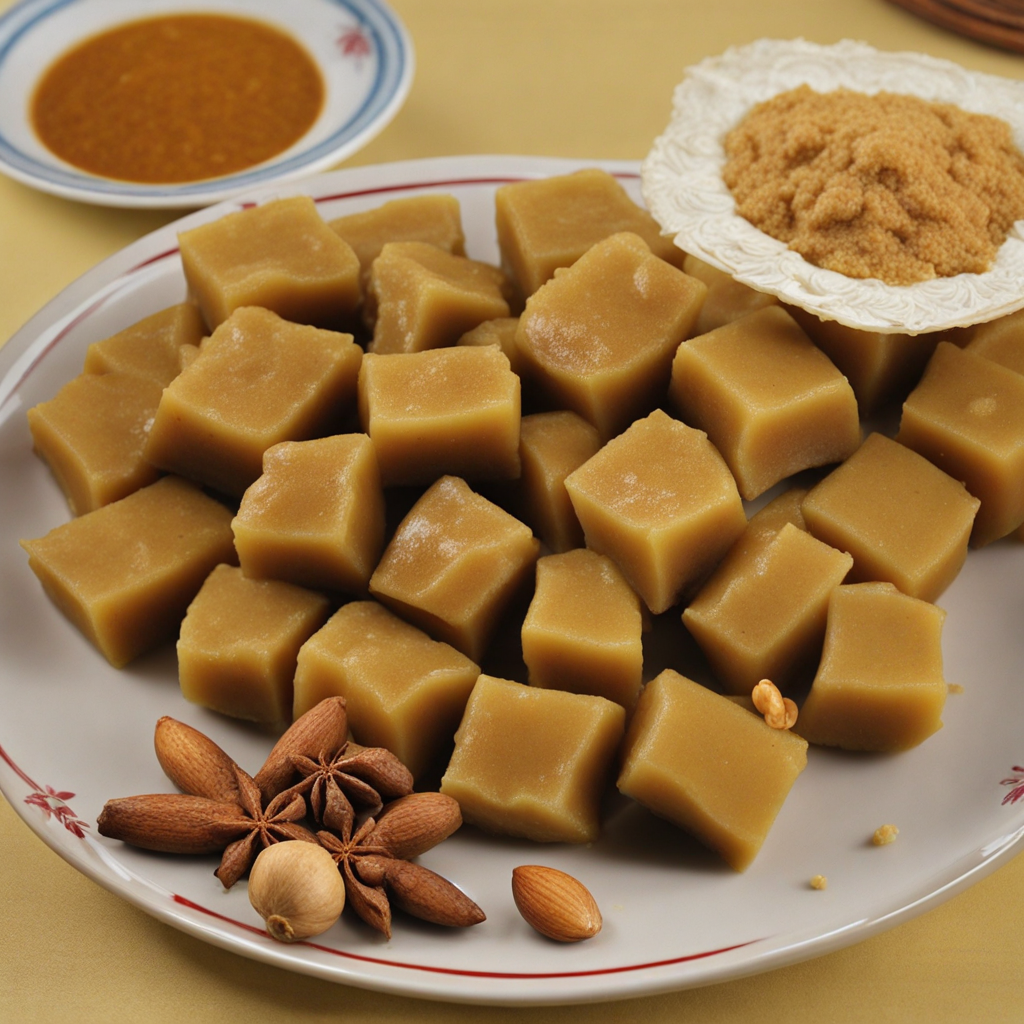Egg Hoppers
Egg hoppers, or 'appa', are a delightful Sri Lankan dish that combines the best of both worlds: the comforting texture of a pancake and the richness of a perfectly cooked egg. These bowl-shaped pancakes are made from a fermented rice flour batter, which gives them a light, airy quality, and a subtle tang. The batter is skillfully swirled in a small, wok-like pan, creating a crispy edge that contrasts beautifully with the soft, tender center. The true magic happens when an egg is cracked into the hollow of the hopper, allowing it to cook gently, resulting in a runny yolk that adds a luscious richness to each bite. Traditionally, egg hoppers are served with a side of sambol, a spicy condiment made from ground chili peppers and coconut, which adds a vibrant kick to the dish. The combination of the mild, creamy egg with the fiery sambol creates a harmony of flavors that dance on the palate. Additionally, many enjoy their hoppers with a drizzle of coconut milk or even a side of curry, further enhancing the experience with layers of taste and texture. Each forkful offers a delightful contrast between the crispy edges and the soft, custard-like center. Enjoying egg hoppers is not just about the taste; it's also about the experience. Often enjoyed for breakfast or as a snack, these hoppers are typically made fresh on the spot, and watching the process is a feast for the senses. The enticing aroma of the cooking batter, the sound of it sizzling in the pan, and the sight of the golden egg nestled in its cradle all contribute to the allure of this dish. For anyone looking to explore Sri Lankan cuisine, egg hoppers are a must-try, inviting you to savor a unique blend of flavors and textures that reflect the richness of the island's culinary heritage.
How It Became This Dish
The History of Appa: A Culinary Gem of Sri Lanka #### Origins of Appa Appa, also known as "hoppers," is a traditional Sri Lankan dish that has captured the hearts of locals and visitors alike. Its origins can be traced back to ancient Sri Lankan culinary practices, which were heavily influenced by the island's geography, agriculture, and the diverse cultures that have mingled over centuries. The earliest evidence of rice cultivation in Sri Lanka dates back over 2,500 years, providing a foundation for dishes like appa that utilize rice as a primary ingredient. The word "appa" itself is derived from the Sinhalese language, where it refers to a type of pancake made from fermented rice flour. The method of making appa involves soaking rice, grinding it into a batter, and allowing it to ferment, which is a hallmark of many traditional Asian cuisines. The use of fermentation not only enhances the flavor but also improves the nutritional profile of the dish, making it a staple in many Sri Lankan households. Historically, appa has been associated with the local agricultural calendar, particularly during harvest festivals. The dish symbolizes the agrarian lifestyle of Sri Lanka and reflects the country’s deep connection to rice as a fundamental food source. #### Cultural Significance Appa holds a special place in Sri Lankan culture, transcending mere sustenance to become a symbol of hospitality and community. Traditionally, it is served at breakfast, often accompanied by a variety of side dishes such as coconut sambol, lunu miris (chili paste), and various curries. The communal aspect of eating appa is evident during family gatherings and festivals, where large batches are prepared and shared among friends and relatives. In Sri Lanka, the preparation of appa is an art form passed down through generations. Each family may have its own recipe and technique, often influenced by regional variations. The skill involved in creating the perfect appa—a thin, crispy base with a soft, fluffy center—demands practice and patience. This culinary craft is a source of pride for many Sri Lankan households, encapsulating the essence of their cultural identity. The dish also has significant religious connotations. It is often prepared during important rituals and ceremonies, serving as an offering to deities in Buddhist and Hindu traditions. The act of making appa can be seen as a form of devotion, with the preparation process treated as a sacred ritual, reinforcing the bond between food, spirituality, and community. #### Development Over Time As Sri Lanka evolved through various influences, so too did appa. The arrival of Portuguese, Dutch, and British colonial powers introduced new ingredients and cooking techniques, leading to a fusion of flavors that enhanced the traditional recipe. For instance, the incorporation of coconut milk into the batter became a staple, resulting in a creamier texture and richer taste. In the 20th century, as globalization began to take hold, appa started to gain recognition beyond the borders of Sri Lanka. The diaspora community began to share their culinary heritage, introducing appa to international food festivals and restaurants. This exposure allowed for creative reinterpretations of the dish, such as the incorporation of diverse toppings and fillings ranging from sweet to savory. Modern variations of appa have emerged, including egg appa, where an egg is cracked into the center of the hopper during cooking, and fruit appa, which features sweet fillings like bananas or jaggery. These adaptations reflect the evolving tastes of younger generations while maintaining the dish’s traditional roots. The rise of artisanal food movements has also reinvigorated interest in traditional methods of food preparation. Many chefs in Sri Lanka and abroad are now focusing on sustainable practices, utilizing locally sourced ingredients and traditional fermentation processes to create authentic appa experiences. This trend not only preserves the culinary heritage of Sri Lanka but also aligns with global movements toward sustainable and ethical eating. #### Appa in Contemporary Sri Lankan Cuisine In contemporary Sri Lankan cuisine, appa has become a versatile dish that can be enjoyed at any time of the day. Street food vendors and roadside eateries, known as "kade," have popularized appa as a quick and affordable option for both locals and tourists. The rise of food tourism has further propelled appa into the spotlight, with food enthusiasts seeking authentic Sri Lankan experiences. Moreover, the dish has found its place in fine dining establishments, where chefs experiment with gourmet presentations and innovative pairings. For example, appa can be served alongside gourmet curries or fusion dishes that blend Sri Lankan flavors with international cuisines. This evolution reflects a broader trend in which traditional foods are reimagined for a modern audience without losing their essence. In recent years, social media has played a vital role in popularizing appa. Platforms like Instagram and TikTok have allowed food influencers and home cooks to showcase their unique takes on the dish, creating a community of enthusiasts who celebrate its diversity and creativity. This digital age has made it easier for people around the world to learn about and appreciate Sri Lankan culinary traditions, further solidifying appa's status as a global food icon. #### Conclusion Appa is more than just a delicious pancake; it embodies the rich history, cultural significance, and evolving nature of Sri Lankan cuisine. From its ancient agricultural roots to its place on the modern dining table, appa serves as a testament to the island's diverse influences and the resilience of its culinary traditions. As Sri Lanka continues to navigate the complexities of globalization and food trends, appa remains a beloved dish that unites people, transcending boundaries and celebrating the shared joy of food. In this ever-changing culinary landscape, the future of appa looks promising. With continued interest in sustainable practices and a deeper appreciation for traditional foods, appa is set to remain not just a dish of the past, but a vibrant part of Sri Lanka's culinary narrative for generations to come.
You may like
Discover local flavors from Sri Lanka







